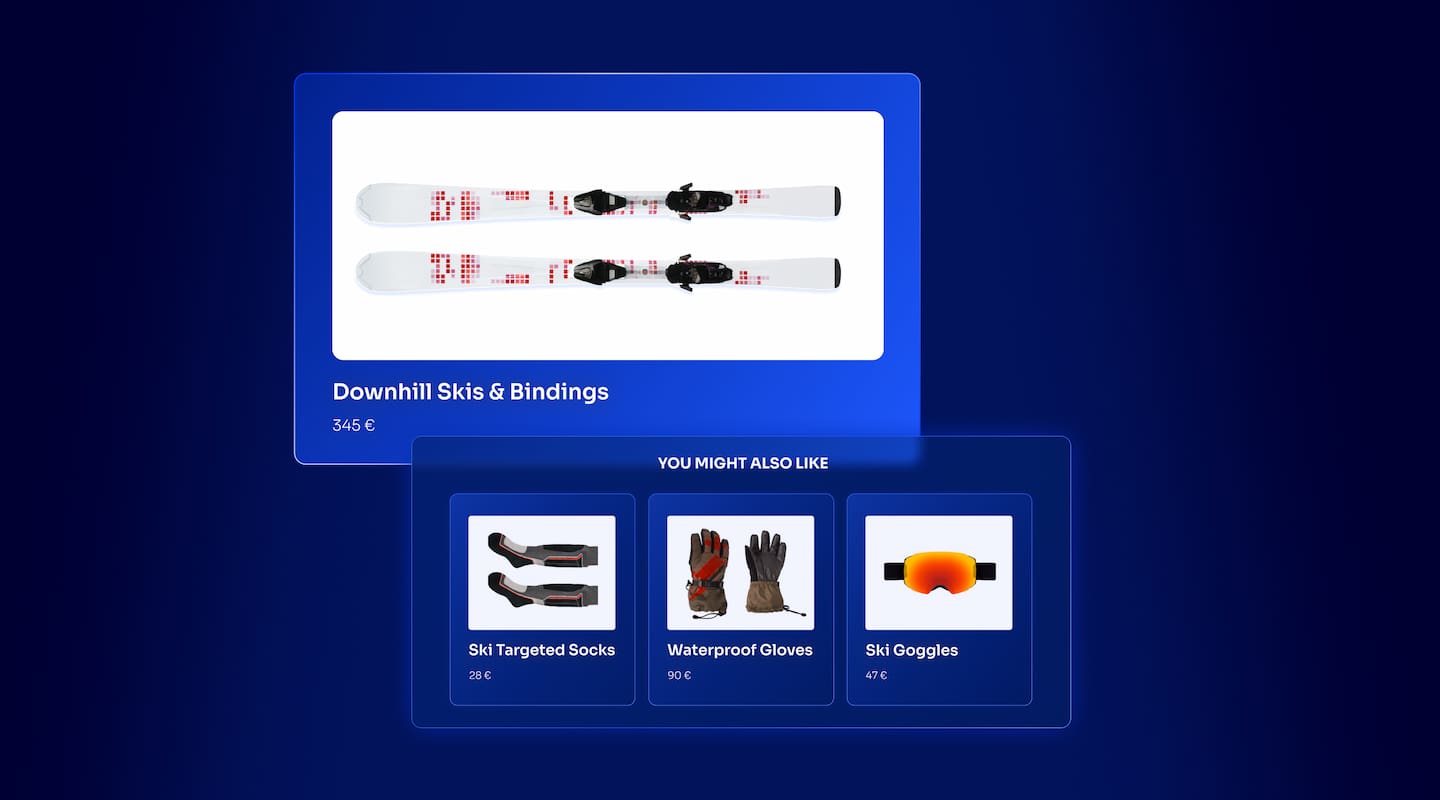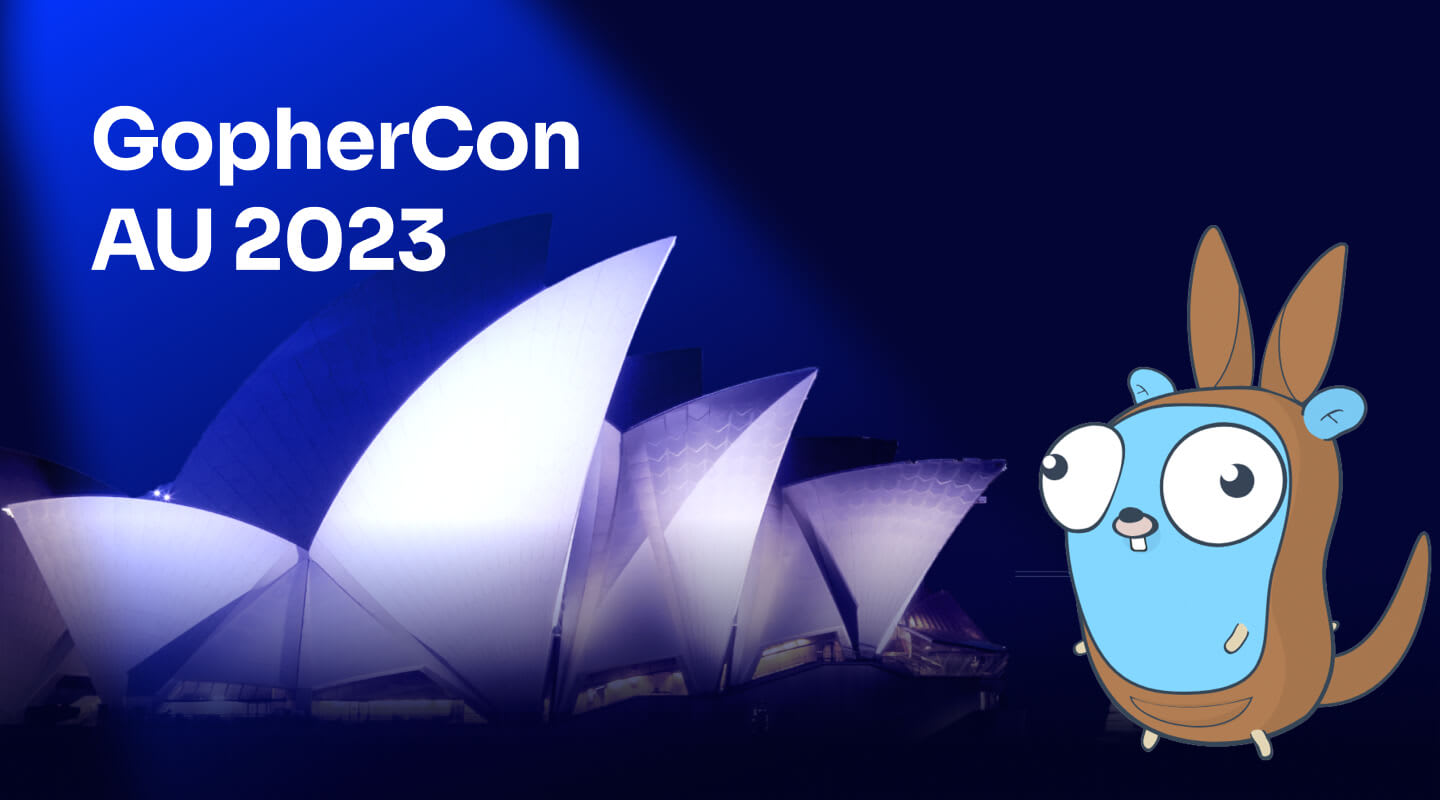Add InstantSearch and Autocomplete to your search experience in just 5 minutes
A good starting point for building a comprehensive search experience is a straightforward app template. When crafting your application’s ...
Senior Product Manager


A good starting point for building a comprehensive search experience is a straightforward app template. When crafting your application’s ...
Senior Product Manager

The inviting ecommerce website template that balances bright colors with plenty of white space. The stylized fonts for the headers ...
Search and Discovery writer

Imagine an online shopping experience designed to reflect your unique consumer needs and preferences — a digital world shaped completely around ...
Senior Digital Marketing Manager, SEO

Winter is here for those in the northern hemisphere, with thoughts drifting toward cozy blankets and mulled wine. But before ...
Sr. Developer Relations Engineer

What if there were a way to persuade shoppers who find your ecommerce site, ultimately making it to a product ...
Senior Digital Marketing Manager, SEO

This year a bunch of our engineers from our Sydney office attended GopherCon AU at University of Technology, Sydney, in ...
David Howden &
James Kozianski

Second only to personalization, conversational commerce has been a hot topic of conversation (pun intended) amongst retailers for the better ...
Principal, Klein4Retail

Algolia’s Recommend complements site search and discovery. As customers browse or search your site, dynamic recommendations encourage customers to ...
Frontend Engineer

Winter is coming, along with a bunch of houseguests. You want to replace your battered old sofa — after all, the ...
Search and Discovery writer

Search is a very complex problem Search is a complex problem that is hard to customize to a particular use ...
Co-founder & former CTO at Algolia

2%. That’s the average conversion rate for an online store. Unless you’re performing at Amazon’s promoted products ...
Senior Digital Marketing Manager, SEO

What’s a vector database? And how different is it than a regular-old traditional relational database? If you’re ...
Search and Discovery writer

How do you measure the success of a new feature? How do you test the impact? There are different ways ...
Senior Software Engineer

Algolia's advanced search capabilities pair seamlessly with iOS or Android Apps when using FlutterFlow. App development and search design ...
Sr. Developer Relations Engineer

In the midst of the Black Friday shopping frenzy, Algolia soared to new heights, setting new records and delivering an ...
Chief Executive Officer and Board Member at Algolia

When was your last online shopping trip, and how did it go? For consumers, it’s becoming arguably tougher to ...
Senior Digital Marketing Manager, SEO

Have you put your blood, sweat, and tears into perfecting your online store, only to see your conversion rates stuck ...
Senior Digital Marketing Manager, SEO

“Hello, how can I help you today?” This has to be the most tired, but nevertheless tried-and-true ...
Search and Discovery writer
“Let’s not get bogged down in semantics.”
Like wisdom-spouting Homer Simpson, you’ve maybe said — or heard other people resort to — this tired phrase or something like it (“It’s just semantics.”). In other words, you or they didn’t want to debate something as trivial as the literal meanings of the words or their purported linguistic development, but instead, look past those pesky linguistic details of word choices and see the forest for the trees in terms of drawing conclusions or agreeing on next steps.
The semantics — what the words mean — could, however, be the determining factor in how everyone sees a situation, as opposed to a linguistic nuisance preventing agreement.
English-language dictionary definitions of “semantics” run along the lines of “the study of meanings” in language and the field of study that’s focused on linguistic meaning. In their study of semantics, semanticists love to look at different meanings — meanings of words, meanings of sentences. They drill in on sentence structure and syntax and synonyms. Linguistics is their thing. The study of words is their pride and joy; the scientific study of the relationships between words makes them tick.
Michel Bréal (1832–1915), a French linguist, is considered the founder of modern semantics. However, semantics as he defined it proved to be a fairly broad concept, so various subforms ultimately grew out of the initial concept. These include:
Polish-American philosopher Alfred Korzybski (1879–1950), who wrote a groundbreaking book called Science and Sanity (Cambridge University Press), came up with “general semantics,” which he considered both materially different from — and more all-inclusive of — the field of semantics. According to Brittanica, “the study of language as a representation of reality” sums up his concept.
While “formal” semantics sounds like it could cover the same idea as the “general” kind in this case, there’s more happening. Specifically, says Wikipedia, “formal tools from logic and theoretical computer science” are used to study grammatical meaning in natural languages. Formal semantics is typically considered an interdisciplinary field: it’s a sub-branch of linguistics and philosophy, plus it touches computer science, mathematical logic, and cognitive psychology.
By definition, aren’t all semantics “linguistic”? Apparently not. According to reference site ThoughtCo., this version of semantics looks “not only at grammar and meaning but at language use and language acquisition as a whole.” Its focuses include how meaning is expressed in natural languages and what words mean, e.g., as they appear in sentences.
A subfield of the subfield linguistic semantics, not surprisingly, this one sounds a lot like the others: It’s “the study of word meanings,” according to Wikipedia. “Lexical units,” which include phrases and compound words, are analyzed related to how word meaning is structured, how words behave in terms of grammar and compositionality, and how senses and uses of words interface with each other.
Ray Jackendoff, a philosophy professor at Tufts University, pioneered this “framework for semantic analysis” in 1976 with the goal of describing how people express their understanding “by means of linguistic utterances.”
Phew; talk about getting bogged down in semantics. Who knew that the definition of a word or phrase could so easily vary based on a whole range of factors.
That’s also true when you get into the semantic elements of online search: users finding what they want to read about or buy on websites and in apps.
Let’s look at how determining the genuine meaning of a word plays a role in refining search queries.
True or false: This type of semantics isn’t a common or official subset of semantics.
If you guessed true, we’re impressed. It isn’t common yet, anyway; although there are a few references to it in industry content. But semantically speaking, search semantics seems like a great way to refer to the ways that word-use considerations impact search-engine results. After all, “semantic search” is a thing. Search semantics, semantic search…hey, let’s not argue about the semantics. We can enjoy a little use of figurative language here.
Semantic search refers to getting a better understanding of what people truly want through the help of AI: natural language processing (NLP) and machine learning. It’s a form of data searching focused on determining the meaning of search queries and related content in order to best meet people’s needs for finding products and information.
Essentially, semantic search works by drawing links between words and phrases; it’s able to interpret digital content in a more “human-oriented” way. With that achieved, the website can offer the searcher more accurate, personalized search results.
Semantic search applies user intent, context, and conceptual meaning to match a user query with corresponding content. It uses vector search and machine learning to match a query, even if there are no word matches.
In terms of search, “semantics” refers less to word meaning than it does to contextual meaning as it applies to user, shopper, or customer intent.
Instead of depending on individual keywords for matching content — the relatively one-dimensional, earlier, standard way of providing search results — semantics as it applies to search allows for searching on whole concepts, thereby more accurately pegging meaning. And with semantic search, a higher level of (AI-based) intelligence is applied.
Put another way, while a traditional search engine deciphers queries based on keywords or short strings of words, a semantic search engine takes a more holistic approach, considering what the words mean together and how they relate to one another. This approach is more similar to the way humans interpret language.
Algolia’s semantic-search expert Dustin Coates talks about how this works on the Voicebot.ai podcast with Bret Kinsella:
You may not even know the words that you’re looking for, but you’re still finding that information because it’s matching conceptually…. Concept search is powerful because you’re no longer forcing your users to try to think about the words they should use…. The search engine is now responsible for understanding the user, not the user understanding the search engine. Semantic search is…all about understanding what the user wants — the user intent.
What are some examples of semantic searching considerations? In an article for Search Engine Journal, Coates cites a few:
As you can see, when it comes to nailing search queries, semantics can help guide the way to more-accurate results right off the bat. Semantic search improves not just relevance and ranking but the total searcher experience. It’s not an overstatement to say that semantic search can significantly reduce a company’s effort and the amount of resources required to improve its site or app search relevance.
The takeaway: semantic search eliminates irrelevant search results, creating a smoother experience.
Wondering how much you could improve the quality of your users’ search results by adding a little semantic “wisdom”?
One option: provide proven semantic search with the Algolia API. We have a great track record using machine learning–driven semantic search to generate satisfying online experiences, whether your users are looking for movies to watch or your shoppers are looking for hot items to own and bargains to discover.
By combining the promise of semantic search with the proven successes of traditional keyword search, we’ll supply you with the most complete and relevant search results for your users, shoppers, customers, or all three.
Get in touch with our team today. We look forward to discussing the upsides of semantic search for your particular use case, plus how you could boost your ROI as a direct result.
Powered by Algolia Recommend